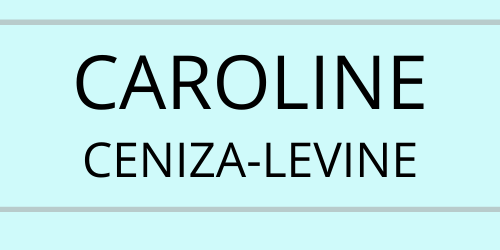After I once heard about 7,800 layoffs coming at Microsoft, first it inspired my advice post on Forbes on career mistakes caused by not acting when layoffs are imminent. Then I checked on a former colleague who was there, but luckily she had already moved five months earlier. She mentioned that it was obvious things were going south and wondered why more of her colleagues had not decided to leave earlier, before everyone who waited would flood the job market at the same time. Failing to act is something many professionals do, not just in response to layoffs.
Below are seven common “sins of omission” – career mistakes caused by inaction, but you can also check out my deep dive on careers, why they stall, how to assess where you are, and what you can do.
Weak connections
Connecting to people is never urgent (unless you need something in which case it’s transacting and not genuinely connecting). If you don’t take the time to build a relationship, the networking police won’t ticket you. But you’ll have weak connections that won’t support you in a pinch.
Small network
You might think you’re OK because you have a handful of strong relationships. A small, dedicated group of friends is a blessing, for sure, but a strong network is about quantity, as well as quality. The bigger the network, the more likely you will have access to what you need – different industries, different sectors, different professional questions — at any given time. If you don’t proactively expand past your inner circle, you’ll be limited in how much your network can support you.
Insular thinking
Quantity is also about diversity of ideas and news. If you interact with the same group – from the same region or the same level or the same way of thinking – you won’t hear about an innovative approach to a problem that one industry is doing that could be relevant to something you’re doing. Expanding your thinking is not just about variety in your network but also about variety in the information you consume, events you attend, and activities you participate in. No one is going to force you to switch up your reading or attend a different conference or experiment with a new hobby, but too much of the same thing invites lazy thinking.
Career plateau
Doing your day-to-day job is not the same as managing your career. You can perform on the job and still plateau. The inaction is in not asking for a promotion review or a bigger scope or a different scope (growth isn’t always upwards but can be laterally as well). I have seen many capable professionals who let years go by before questioning if they are at the right level or even in the right career.
Compensation plateau
It’s not just your role that is danger of stagnation, but also your compensation. How many people do you know who are longtime at their company and making less than a counterpart who is new? These longtimers failed to mark their compensation up to market value. Inaction shows in not keeping up on information about what is fair compensation and not asking for what you deserve.
Mission drift
I also hear from professionals who are fine with their level and fine with their compensation but have a general malaise around “is this all there is?” In the busyness of day-to-day, the meaning behind why we do what we do is easily lost. If you don’t proactively think about the weighty issues like legacy, purpose and fulfillment, they will likely only surface in a crisis.
You “let yourself go”
The other day, my teenage daughter started playing around with the piano in our living room (currently used more as a coffee table than a performance instrument). She asked me if I could still play all the scales. I trained at Juilliard and Manhattan School of Music but decades ago at this point (wow, I’m old!), and I hadn’t played in years. Yes, I could remember the scales mentally but my fingers wouldn’t follow so easily. I had really “let myself go” regarding my piano skills. Letting yourself go professionally might show up in a slovenly look, a little less punctuality, or coasting at work. It’s diminished effort over time in the small but important habits that turn into barnacles that sink the submarine. It’s not what you did; it’s what you didn’t do or stopped doing.
Proactive action steps include maintaining good habits, following and nurturing your inner compass, marking your value to market, managing your long-term career not just your job, expanding and maintaining a diverse network, and expanding and maintaining a diverse body of knowledge and way of thinking. Where are you falling into the habit of inaction? How do you remind yourself to focus on important, but not time-urgent priorities?
Feeling stuck in your career? Check out my deep dive on careers, where I cover why people stall in their career, how to assess where you are in your career, and what you can do to move ahead.





